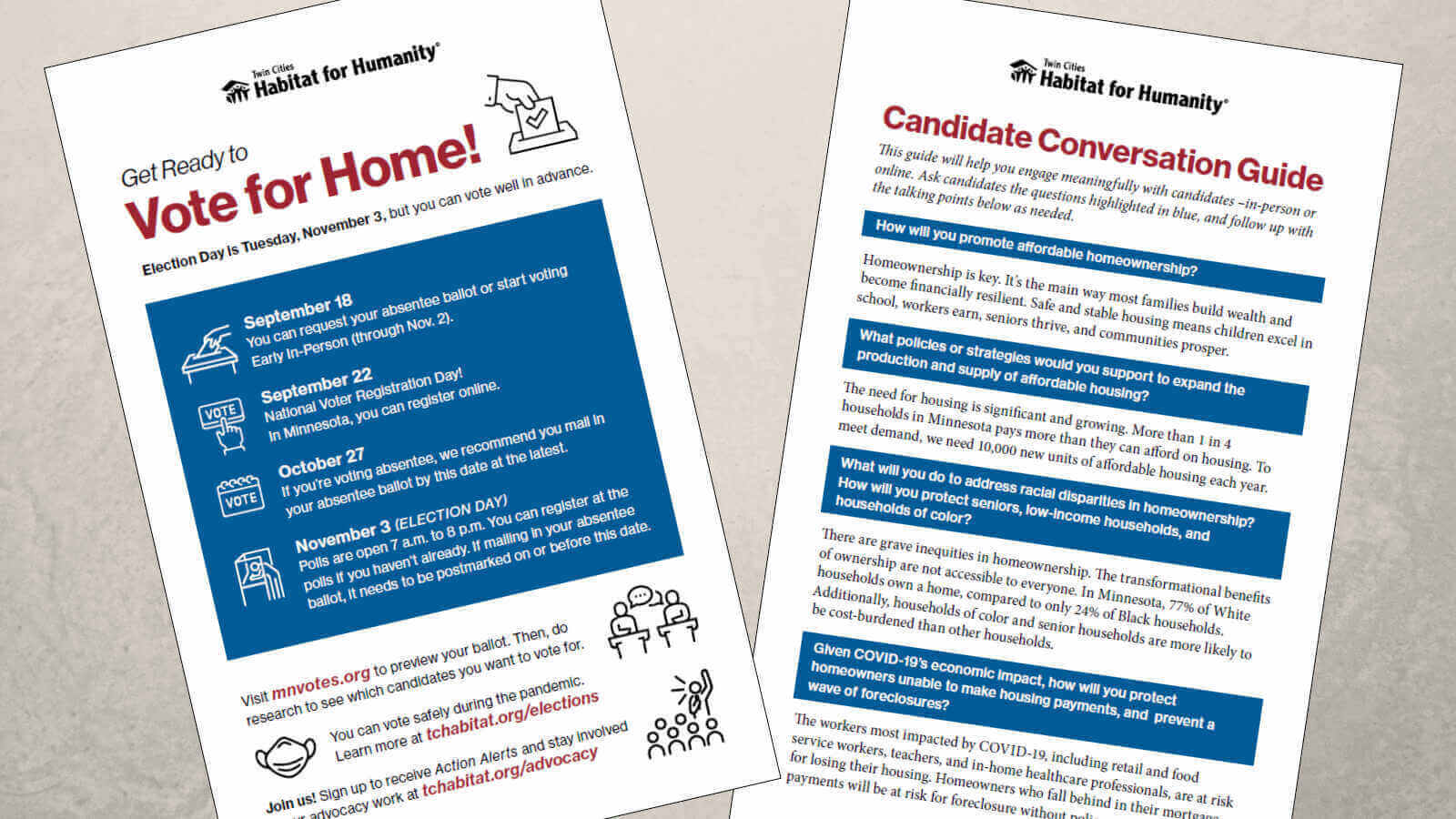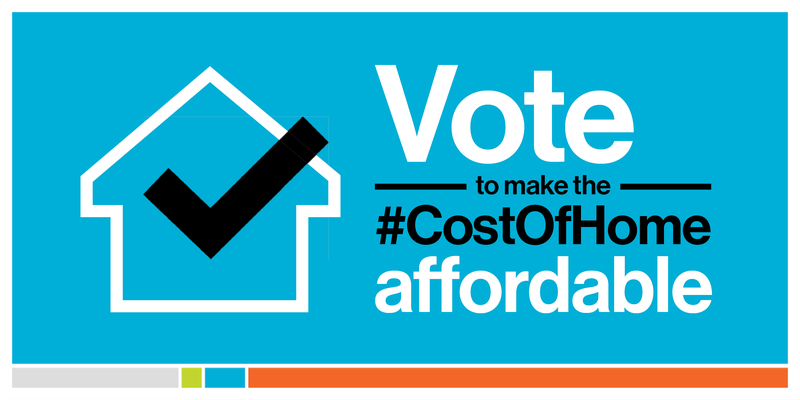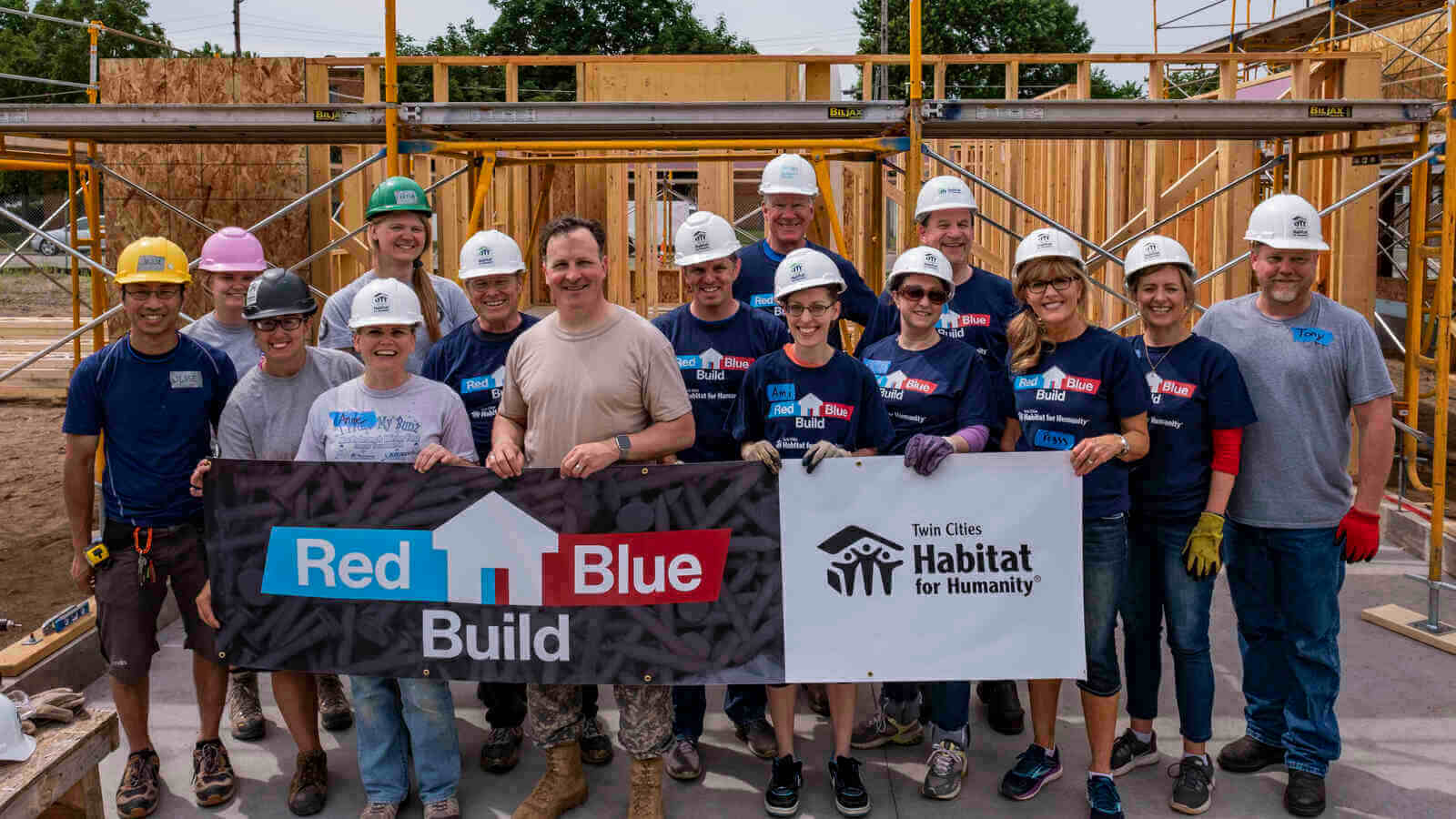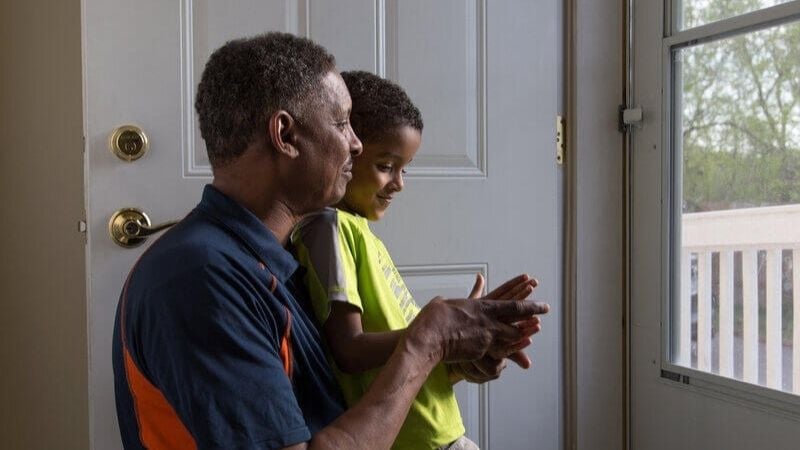Your 2020 Elections Guide, Part 2
Elections are an important way for individuals and communities to make their voices heard. That’s why Twin Cities Habitat is excited to engage our...

At Twin Cities Habitat, we believe elections are an important way for individuals and communities to make their voices heard. That’s why we are excited to engage our Housing Heroes in the 2020 Elections. Of course, we are a 501(c)(3) nonprofit, so all our election engagement will be strictly non-partisan.
2020 is a big election year. The U.S. President, House of Representatives, and some Senators are up for re-election. So are all Minnesota State Senators and Representatives. Whomever is elected on November 3 will make key decisions as our communities begin to recover from the impacts of COVID-19.
Moreover, elected officials have the power to create change through policy. It was elected leaders who upheld discriminatory housing policies for decades, both in Minnesota and nationally. You can learn more about this history and how today’s elected leaders can challenge these disparities by reading our Race & Housing series: tchabitat.org/race.
Simply put, elections matter, this election matters, and your voice matters.
That’s why we’ve created a Candidate Conversation Guide—to give you talking points and tools for using your voice to engage with candidates.
Let candidates know what you value. As candidates campaign for office, they will keep an ear out for the issues that are important to voters – who have the power to decide whether or not they get elected. When you talk about an issue that matters to you, candidates may begin to prioritize that issue themselves and elevate it on the campaign trail, or later on, in office. The more we can all speak about the issue of homeownership and housing, the greater the chance that it will become a talking point and issue of focus for candidates.
It’s also important to know where candidates stand. Amidst all the rhetoric of campaigns and elections, it can be difficult to parse out what candidates actually believe or value. This guide is meant to be a tool for you to gauge whether a candidate is a champion for homeownership or housing. But don’t stop with the guide – if there are other questions or talking points that come to mind, use them. The candidate is campaigning for your vote, so you get to set the tone and decide what is a priority.
In previous years, we’ve created a “reverse door-knocker” to use when a candidate is canvassing and knocks on your door. Due to COVID-19, campaigns may not rely as heavily on direct door-to-door canvassing this year. Instead, you can use the Conversation Guide to ask a question at a virtual townhall, in a phone call with a candidate, or for talking points in an email to their campaign. Download it onto your desktop, print it off and keep it near the phone, or hang it on your fridge. We hope it will be helpful for you.
Personally, I would have used this in the recent primary election. I live in Ward 6 of Minneapolis, which had a special election for the City Council. In the days leading up to August 11, I received several phone calls directly from candidates. At the time, we had not yet finalized the talking points and questions for the guide. So, I improvised and asked them questions about how they would work to address the racial equity gap in homeownership and other issues that matter to me. Next time I hear directly from a candidate, I’ll definitely use this guide as a reference.
And we want to hear from you! As you connect with candidates on the campaign trail, let us know if you’re using the Candidate Conversation Guide. What’s working? What isn’t working? Where could you use more support, and what questions do you have? Team Advocacy is publishing an FAQ blog mid-September, so send us your questions now!
Your gift unlocks bright futures! Donate now to create, preserve, and promote affordable homeownership in the Twin Cities.

Elections are an important way for individuals and communities to make their voices heard. That’s why Twin Cities Habitat is excited to engage our...

As Habitat has shared over the past few months, elections are an important way for individuals and communities to make their voices heard. And...

You may have heard about a stimulus package passed by Congress to help the American people during the economic downturn caused by COVID-19. Among...